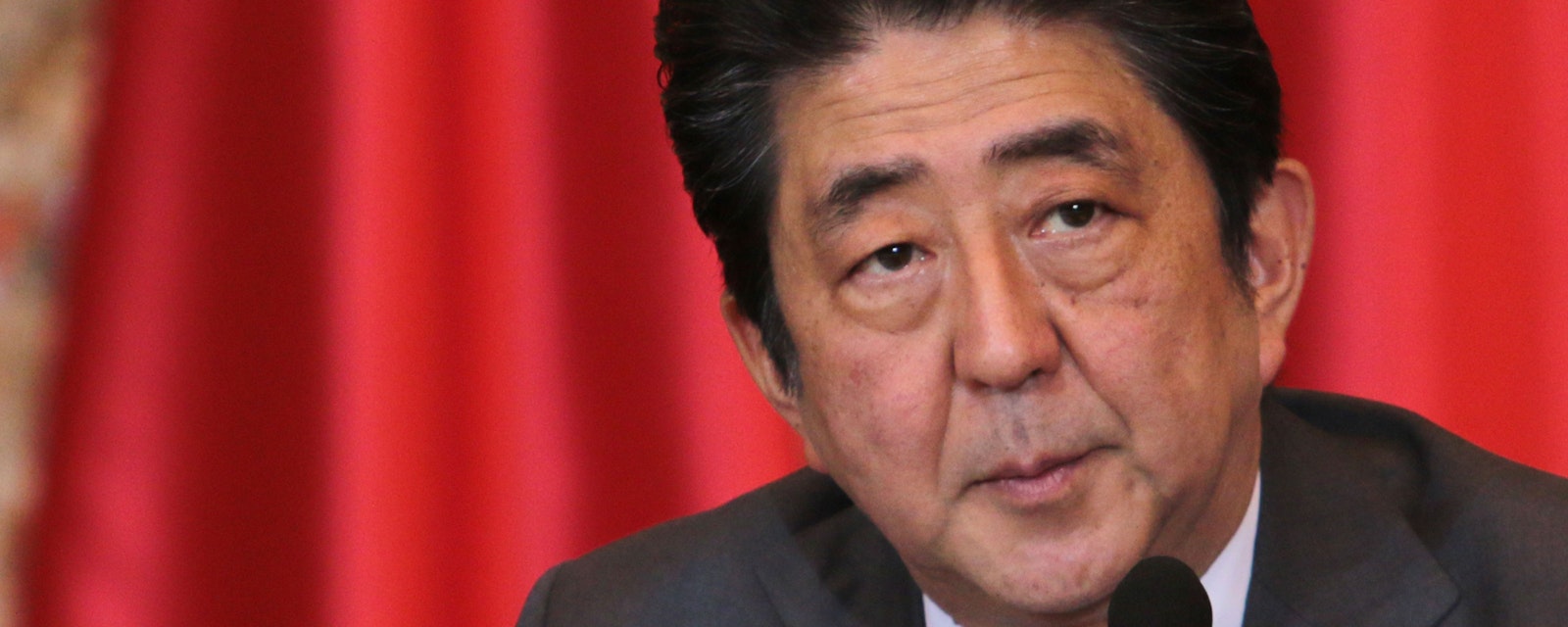Prime Minister Shinzo Abe’s approval ratings tumbled in a series of polls conducted over the weekend, highlighting the extent to which the reemergence of the Moritomo Gakuen scandal has critically undermined support for his government.
While many Liberal Democratic Party (LDP) supporters continue to stand by the prime minister, Abe’s support within the party has weakened. Abe will fight to serve until the end of his term, but if support in the LDP continues to fall he could be a lame duck months before his term ends, clearing the way for a fierce succession battle.
After the weekend’s polls – which recorded double-digit falls in approval and corresponding increases in disapproval –Abe’s average net approval fell to -8%, compared with +13%at the beginning of March. His gross approval ratings fell to record lows in several polls. This plunge was by no means unexpected, and if his support were to remain at this level, it is possible that the prime minister could hold on to power and contemplate another election bid. However, the polling data suggests that Abe’s support could weaken further. While it is still more likely that Abe clings to power before leaving office at the end of his term in September, the latest polls suggest that the possibility of an early resignation is higher than it seemed last week.

The most significant finding is that Abe faces a large and growing trust gap. In every poll, large majorities, amounting to roughly three-quarters of the electorate, said they do not believe the prime minister’s claim that neither he nor his
wife had anything to do with the land sale or the Ministry
of Finance’s (MOF) cover-up. In several polls, among respondents who disapproved of the government, there
was a sharp increase in those who said they disapproved because they could not trust the prime minister. This trust gap extends to First Lady Akie Abe, and there is now a strong consensus – nearly two-thirds support in every poll – that the first lady should testify before the Diet about her connections to Moritomo Gakuen and the land sale, which the administration has heretofore resisted.

Accordingly, although large majorities do not believe Aso’s claim that the cover-up originated with former MOF Financial Bureau director-general Nobuhisa Sagawa and his subordinates, only slight majorities think that Aso should resign as finance minister. By contrast, the public is more inclined to view the scandal and the cover-up as Abe’s responsibility, with at least two-thirds of voters (and as many as 82% in one poll) convinced that Abe bears at least some responsibility. In short, the Abe government’s attempt to shift the blame to the bureaucracy is not working. Even without a “smoking gun” that proves political involvement, voters do not believe that Abe was the passive beneficiary of civil service rule breaking. For some voters, it seems, the MOF cover-up is the smoking gun. This does not yet mean that voters are clamoring for Abe’s resignation, although the one poll that explicitly asked about Abe’s resigning found 43.8% in favor and 47.6% opposed. At the same time, this could enable Aso to survive the scandal, since it is unlikely that his exit would do much to protect the prime minister. Finally, while Abe’s support from within the LDP is still strong, there are signs that it could also be breaking. For example, while one poll found that 58% of LDP supporters think Abe should receive a third term, this number was twelve points lower than in February. Other polls found that even a majority of LDP supporters is skeptical of the government’s explanations of the scandal and cover-up. If these LDP supporters rally behind the prime minister, it could stabilize his approval ratings, enabling him to serve out his term and perhaps even contemplate a reelection bid. But if doubts grow among LDP supporters, Abe will become a lame duck and could face calls from within his party to exit before his term ends. Shigeru Ishiba, the prime minister’s most-vocal critic and a likely candidate in the leadership election, has called upon the party to hold Abe accountable ahead of the LDP’s 25 March convention.





